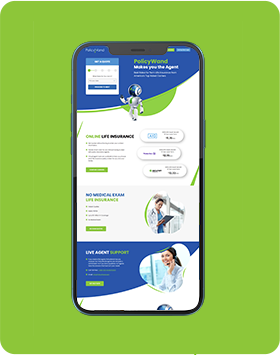Technically there’s no such thing as term life cash value. With term life insurance policies, you pay a specific premium for a specific amount of time (term) and receive a specific payout in the event you die before the term ends. Even the best life insurance companies in the U.S. don’t offer traditional term life insurance with cash value. There’s no time to build it.
However, there are some ways to use a life insurance policy to build it.
Firstly, what’s cash value?
Cash value is money accrued from a life insurance policy over time. The longer you have the policy and the more you pay into it, the more cash value you build.
Cash value is a savings component. You build interest in a tax-deferred investment account your insurance company provides. Part of the rate you pay will go to your premium and administrative fees; the other part will be invested to build interest.
So, it’s more expensive than traditional term life insurance. Also, the savings component varies based on market conditions and your insurance company’s investment performance.
But the great thing about cash value is you can borrow against it or use it to pay your premiums. You can also surrender or cash out your life insurance policy.
What types of life insurance build cash value?
Permanent life insurance policies build cash value. These include whole life and universal life.
Universal Life Insurance (UL) is a type of permanent life insurance that builds cash value and has characteristics closest to those term life has. UL premiums, like term life premiums, are lower. So, you pay a lower premium but still enjoy building cash value. UL insurance has its drawbacks, but it is the closest thing to term life with cash value you can find.
Whole life insurance builds cash value but has set premiums and less flexibility. And it’s more expensive than UL.
Alternative Ways to Leverage Term Life Insurance for Cash
Buy a Return of Premium (ROP) Rider
An ROP is a rider you can add to your term life insurance policy. It enables you to receive a refund on the premiums you paid into it. It also has its drawbacks but is a way to use your term life policy as a savings component.
Sell Your Life Insurance Policy
Technically called a life settlement, you can sell your policy for a cash payment. It won’t be for the whole value of the policy, but a percentage of it. Typically, it’s investors who buy policies. They’re mainly interested in older policyholders because it will take less time to see a return on their investment.
If you want to sell your policy, it’s best to find a broker to handle it.
Convert Your Policy
Young people with young families tend to buy term life insurance because it protects their families at an affordable rate. They aren’t necessarily interested in or able to buy a cash value policy.
However, as children grow their needs grow. Many times this coincides with higher income. So, it may make sense to convert your term policy to a permanent one and enjoy building cash value.
So, to answer the question put forth in the post title, does term life insurance build cash value, it does not. But it can be an effective springboard toward building it in other ways.







